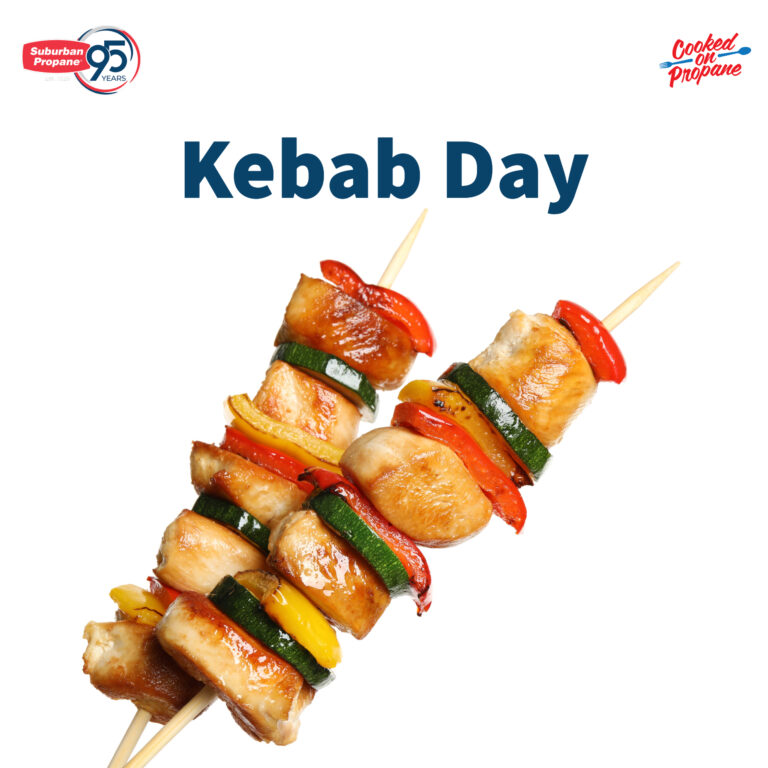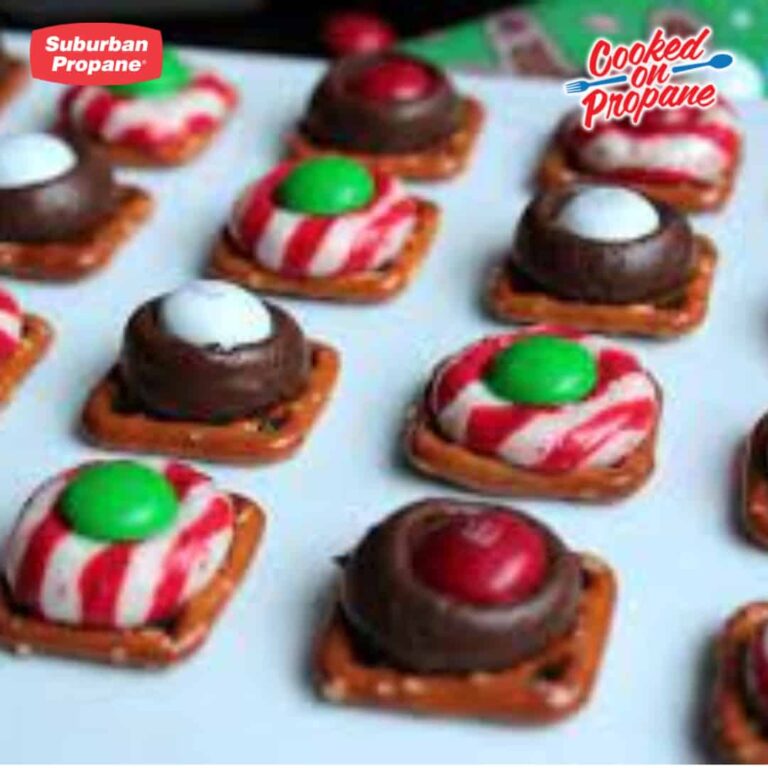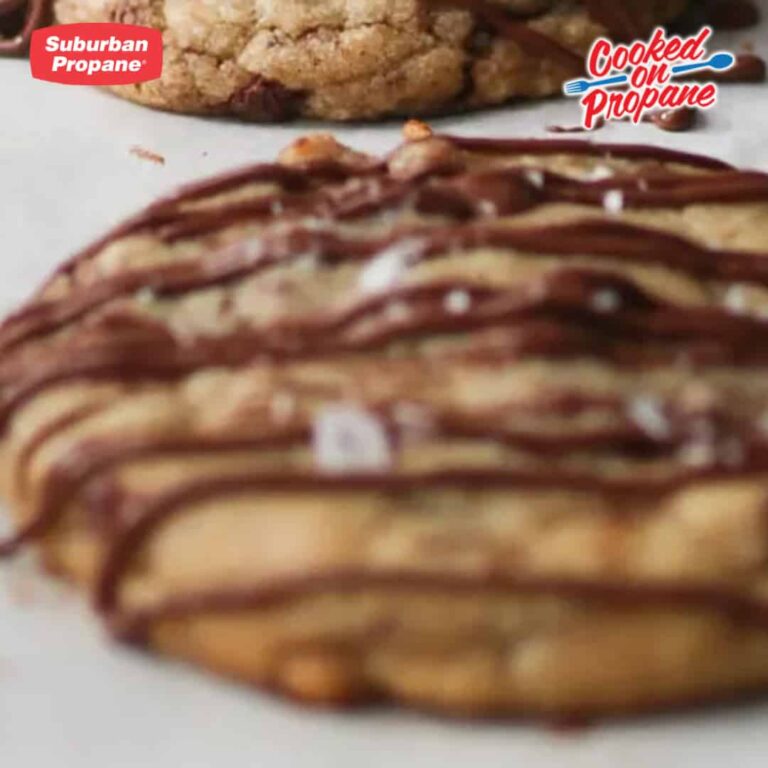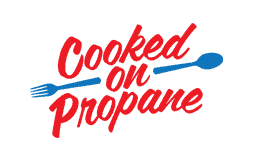The Great Grill Debate: Propane vs Charcoal
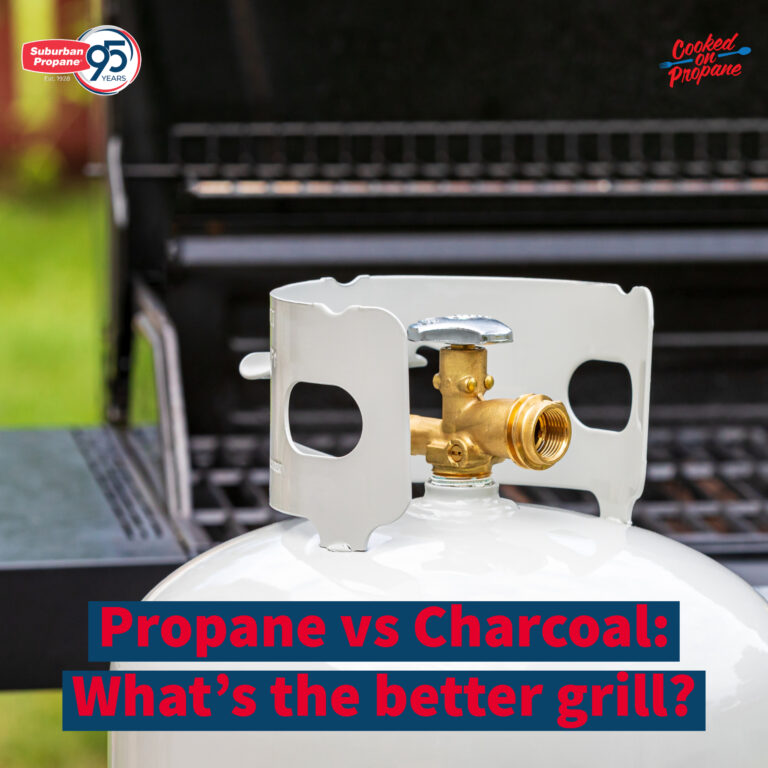
For most, Memorial Day is the official kick-off of summer. And summer means more time outside and enjoying food on the grill. If you’re in the market for a new grill, you are probably comparing, and possibly feeling a little overwhelmed, by all the choices between the two most popular kinds of grills: propane gas and charcoal. We may be biased, but we believe propane grills have the edge, and here’s why:
Speed: When it comes to speed, propane grills light up immediately, heat up much faster (10 minutes) than charcoal grills (30+ minutes), and shut down with the turn of a knob. The cleanup process is simple and speedy (no messy ashes to dispose of) as well.
Health: When grilling with charcoal, more carcinogens end up in your food. When fat drips from meat it creates more smoke, releasing polycyclic hydrocarbons (PAHs) which coat your food. Also, charcoal flames create heterocyclic amines (HCAs), another carcinogen you don’t want in your food. It is proven that there are fewer health risks and physical risks when using a propane grill.
Planet Earth: When you grill with propane, you are releasing far less carbon emissions into the atmosphere. Charcoal’s carbon monoxide output can be 150 times more than propane, or in easier-to-understand terms a propane grill’s carbon footprint is 1/3 of charcoal. The clean-burning characteristic of propane makes it a much better choice for the environment.
Versatility: Propane grills feature multiple burners, allowing you to heat a small section or a large one, and each section can be at a different temperature. With charcoal, it’s one surface area and it’s also difficult to manage the temperature and you can get uneven hot spots. Propane also allows you to cook delicate foods without worrying about overpowering the food with a smoke flavor.
Ease of Use: Nothing is easier than turning a few knobs to light your propane grill. With the addition of a simple tank monitor, you can check the fill amount and never run out of propane. Charcoal grills require you to have briquettes on hand and guess how many you will need based on the surface area. You will also need a lighter and possibly lighter fluid, and long tongs to move the briquettes around to make a more even heating surface.
Cost: While propane grills cost more to purchase, they cost less per use. On average, a full 20-pound propane tank can get you 25 cookouts. Twenty pounds of charcoal will get you 3 cookouts on average. (Remember, you typically pay more for propane tank exchange services than you do to get your tank refilled.)
If you’re stuck for ideas on what to cook on your propane grill, visit our Cooked on Propane blog. A few of our great grilling recipes include:
Salmon and Asparagus in Tinfoil
Propane grills offer a great convenience; you can grill any time, on any night, with no real advanced planning involved. If you’re looking to get your propane tanks refilled, check our location finder to see if your local Suburban Propane customer service center offers that service.
Share this story, choose your platform:
Related Posts
Peace of mind
with dependable
fuel supply, when
you need it
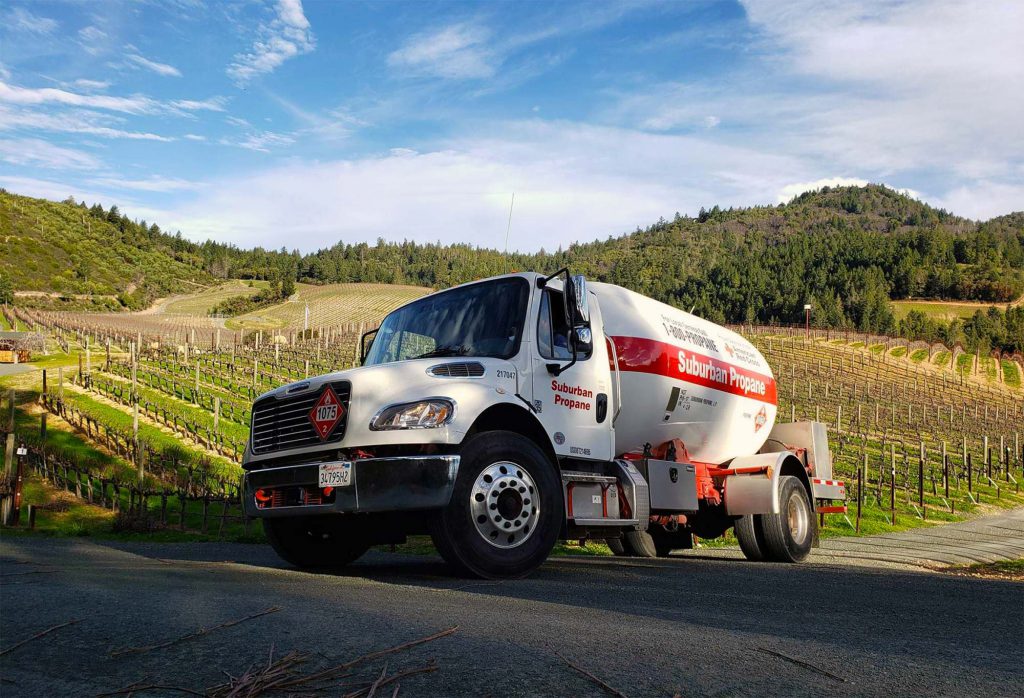
COMMUNITY
700+
Locations providing exceptional service to local communities across 42 states
EXPERIENCE
95+
Years serving our customers and their communities. Customer satisfaction since 1928
CUSTOMER SERVICE
3,200+
Dedicated employees ready to assist you with quality service for all your fuel needs
RELIABILITY
24/7/365
We are here for you with customer service representatives standing by to take your call
Please call us 24/7/365 at 1-800-PROPANE
